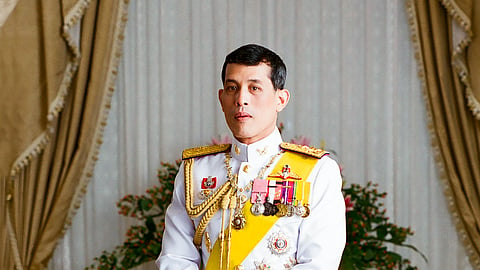

A U.S. academic residing in Thailand was arrested on Tuesday and charged with insulting the country’s monarchy, a rare case involving a foreign national under Thailand’s strict lèse-majesté laws.
Paul Chambers, a political science lecturer at Naresuan University in northern Thailand, reported to a police station in Phitsanulok province, about 360 kilometers (224 miles) north of Bangkok, after being summoned last week. The charges stem from a complaint filed by the Thai Army, according to local authorities.
A Phitsanulok police officer, speaking on condition of anonymity, confirmed that Chambers faces two charges: defaming the monarchy under Article 112 of Thailand’s criminal code and violating the Computer Crimes Act related to online activity. He was later taken to Phitsanulok Provincial Court for a pretrial detention hearing, as reported by Thai Lawyers for Human Rights (TLHR).
Wannaphat Jenroumjit, a TLHR lawyer representing Chambers, said the charges relate to an online seminar where the academic appeared as a speaker. Chambers has denied all allegations.
Strict Laws and Rising Prosecutions
Thailand enforces some of the world’s harshest laws protecting the monarchy from criticism. Under Article 112, insulting or defaming the king, queen, or heir apparent carries a prison sentence of three to 15 years per offense.
The law has been increasingly used since 2020, when mass pro-democracy protests—some calling for monarchy reform—swept the nation. TLHR reports that at least 279 people have since been charged with lèse-majesté, though prosecutions of foreigners remain rare.
Chambers, who specializes in Thai military influence and has lived in the country for years, was denied bail and remains in pretrial detention. No trial date has been set. Authorities also revoked his work visa on Wednesday.
International Concern and Academic Freedom
The U.S. State Department said it was "alarmed" by the arrest and is providing consular assistance. "We are in communication with Thai authorities and have requested access to ensure his well-being," spokesperson Tammy Bruce said in a statement.
Advocates warn the case threatens academic freedom. "Unlike other lèse-majesté cases, this targets an established scholar whose expertise is widely respected," said Akarachai Chaimaneekarakate of TLHR.
Human Rights Watch condemned the charges as part of a broader crackdown on dissent. "This tightens the chokehold on free speech in Thailand," said senior researcher Sunai Phasuk.
Thailand’s military-backed establishment has long used lèse-majesté, sedition, and cybercrime laws to suppress criticism. The military has staged 13 successful coups since 1932, including one in 2014 that ushered in nearly a decade of military-aligned rule.
Analysts suggest the high-profile case could backfire. "It invites international scrutiny the army likely wants to avoid," said Thitinan Pongsudhirak, a political scientist at Chulalongkorn University. "It also stifles the intellectual openness Thailand needs to progress."